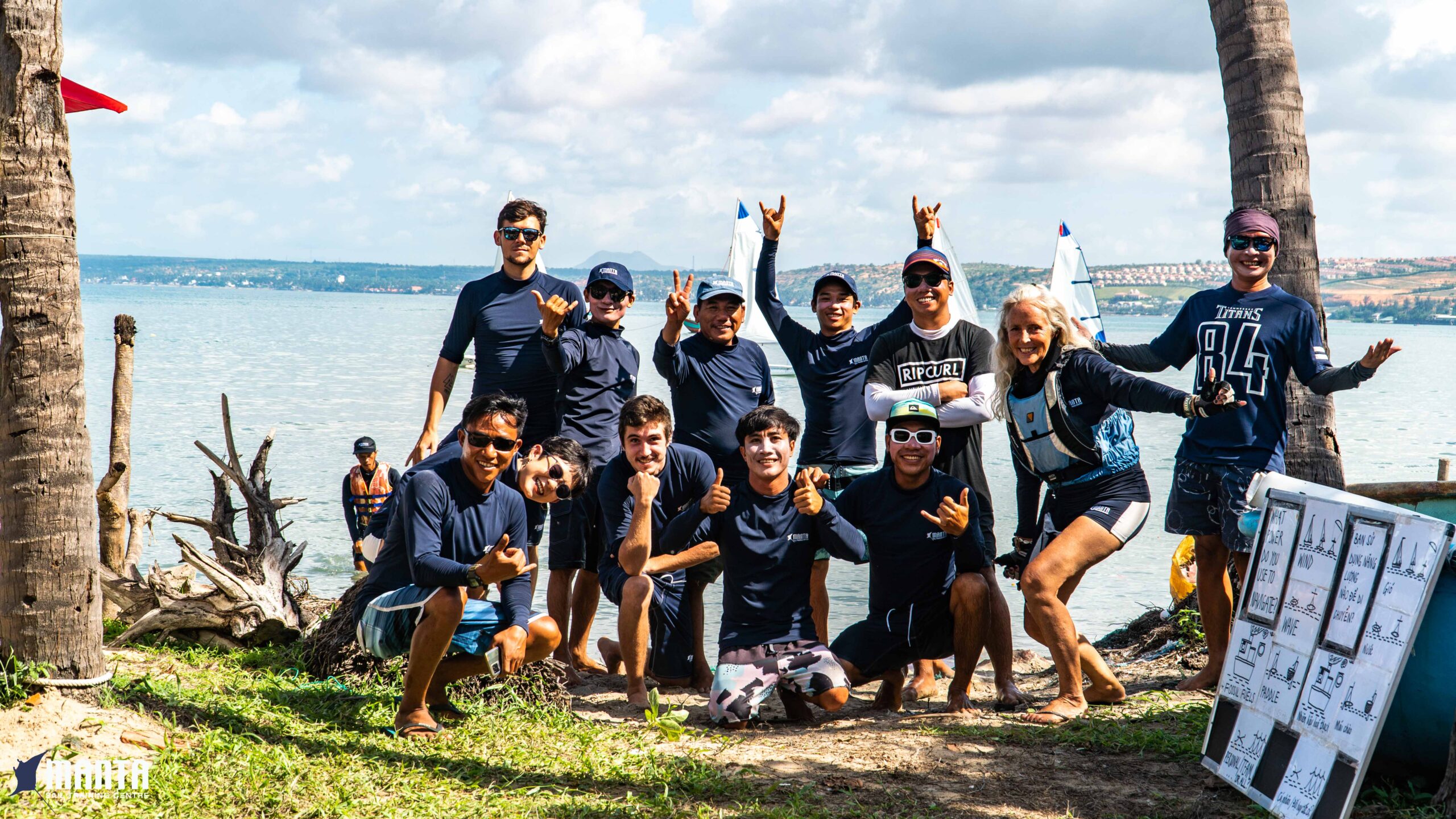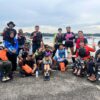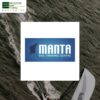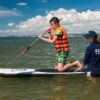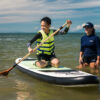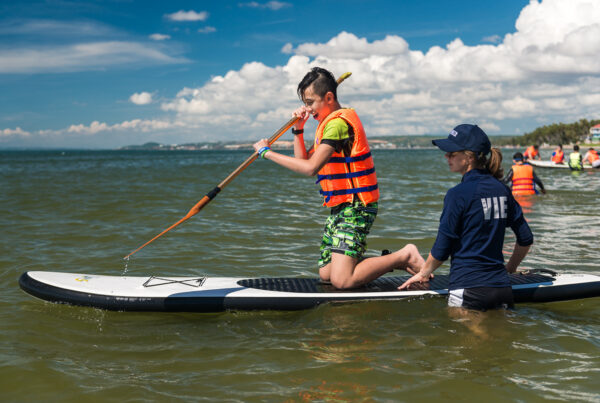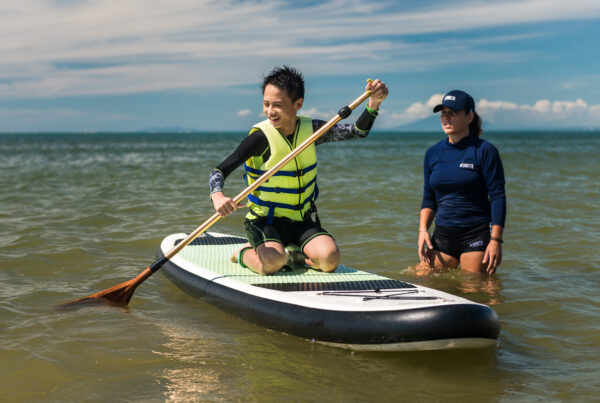Traditional coracling bears strong cultural values of Vietnamese people. In Binh Thuan, it is not only a fishing method, but also an attraction for tourists. Let’s see what traditional coracling at MANTA is like!
What is traditional coracling?
Traditional coracles are a unique form of boat, made from woven bamboo and covered with a waterproof material, which have been used for generations for fishing and transportation. Coracles are an iconic symbol of Vietnam’s rich history and culture.
According to legend, when the French began taxing boats in Vietnam, the local fishermen were unable to pay; as a result, they created circular, woven “baskets” that also served as vessels. The tax-free status and outstanding engineering of the basket boats helped the coast’s fishers a lot in their daily life.

Traditional coracles may be driven by pushing the boat ahead with a paddle. You must push the coracle in the appropriate direction while seated in the coracle’s center and using a single-bladed paddle. It usually takes about an hour to learn the basics of how to drive a coracle although it takes longer to master the technique.
Clients will be able to experience the rush of driving a traditional coracle after they’ve gotten the hang of it, but it will take some practice. Taking the loved ones on a classic coracle is a true thrill.
How are traditional coracles important to Vietnamese?
Coracles are an important part of communities in coastal Vietnam. In case of a marine emergency, they serve as lifeboats. The boats are widely used for both lightweight freight and passenger transportation. Basket boat races are common elements of regional village celebrations.
Many fishermen have modernized their boats, yet there are still others who build traditional basket boats. Contemporary basket boats are made of composite, fiberglass, and canvas. To cruise farther offshore, many have sails or motors.

Basket boats are still a representation of freedom now just as they were then. They are able to function freely and support themselves thanks to their possession of a basket boat. Fishing has frequently turned into a family industry that will be passed down to future generations, in large part because of basket boats.
Traveling within a short range by a relatively small basket boat is also a way to protect the environment. In communities across the world, people are reconnecting with their natural environments, seeking out ways they can live more sustainably.
Traditional coracling service at MANTA
Clients can book a traditional coracle service – either a tour, or lessons. The length of time depends on the client’s wishes and schedule. MANTA recommends an hour for the tour.
For the lesson, the traditional coracle captain can show you how to anchor a coracle and bring up the anchor. They also teach the learners to paddle a coracle as there is a special skill to ensure a round basket boat can go in a straight line.
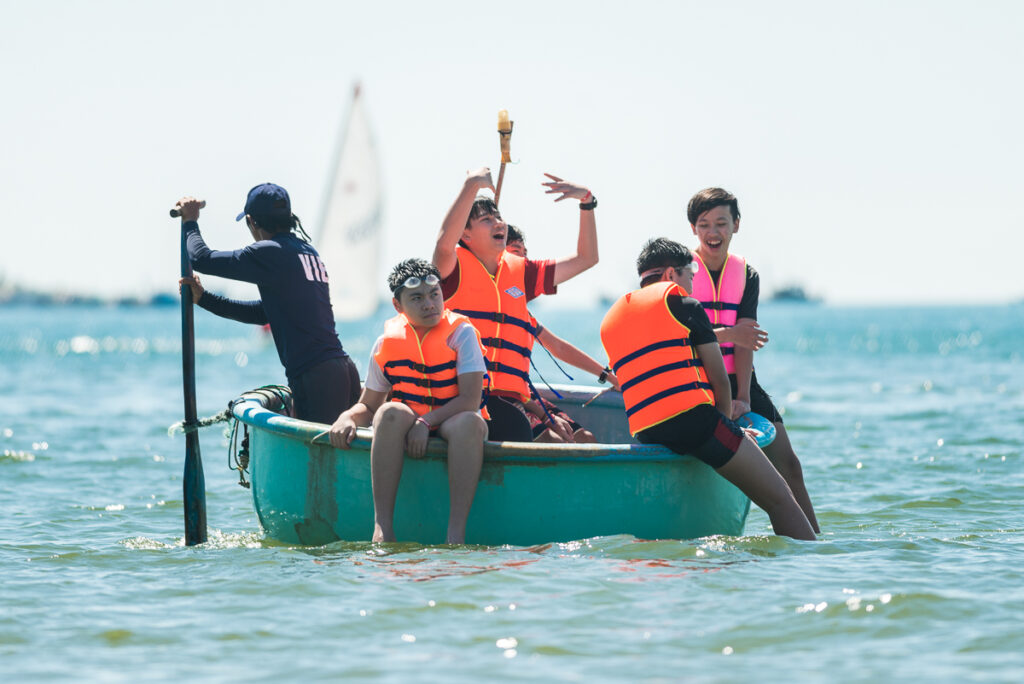
With the tour, it is possible to see: Floating fish farms, whale temples, Mui Ne fishing village, Mui Ne fishing village concrete fish drying ramp, and the red sand dunes, from the sea – although the red sand dunes have mainly been concreted over by real estate developers. There is also a ridiculous lighthouse to see on the dunes – the reason for the lighthouse on the dunes is not yet known!
At MANTA, traditional coracling is available for large groups of 20-100 people in watersports workshops, with a traditional captain for tours/lessons. The rental price is 30USD/coracle/hour (approximately 700,000VND). If you bring your camera for photos and videos, please look after it carefully to avoid getting into the water.
Traditional coracling is a beautiful way of expressing culture and history. It brings people together, preserving Vietnamese traditions and sharing Vietnamese culture. Experience the traditional coracling service for a taste of Vietnamese culture and history at MANTA, booking via email at [email protected].
***Photo by Elena Sergeevna and Ugis
